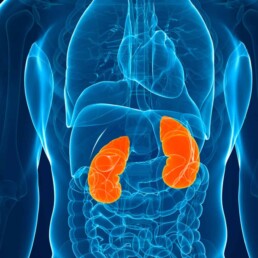In the ever-evolving landscape of medical science, the American Heart Association (AHA) has introduced a pivotal concept known as cardiovascular-kidney-metabolic syndrome (CKM). This term encapsulates the intricate interplay between heart disease, kidney disease, diabetes, and obesity. Understanding and addressing CKM syndrome is essential for improving patient outcomes and advancing public health strategies.

By Majd Isreb, MD, FACP, FASN, IFMCP
The Genesis of Cardiovascular-Kidney-Metabolic Syndrome
CKM syndrome represents a holistic approach to recognizing and managing the interconnectedness of cardiovascular, renal, and metabolic health issues. Traditionally, these conditions were treated in isolation, but the AHA’s integrated perspective underscores the necessity of a more comprehensive treatment approach. The need for this paradigm shift has become evident as the rates of cardiovascular mortality, which had been declining, now appear to be plateauing and even rising in the post-pandemic era.
Stages of Cardiovascular-Kidney-Metabolic Syndrome
The AHA has delineated CKM syndrome into five distinct stages, each with specific characteristics and recommended interventions:
Stage 0: No CKM Risk Factors
- At this stage, the goal is prevention. Individuals should maintain ideal health by following the AHA’s Life’s Essential 8 recommendations, which include healthy eating, physical activity, optimal sleep habits, avoiding nicotine, and maintaining ideal weight, blood pressure, blood sugar, and cholesterol levels.
Join us to end the kidney disease epidemic
Stage 1: Excess Body Fat and Impaired Glucose Tolerance
- This stage involves the accumulation of excess body fat, particularly abdominal obesity, and/or prediabetes. Interventions focus on lifestyle changes such as improved diet and increased physical activity, aiming for at least 5% weight loss. Regular screening every two to three years is recommended per AHA.
Stage 2: Metabolic Risk Factors and Kidney Disease
- Individuals at this stage may have type 2 diabetes, high blood pressure, high triglycerides, or chronic kidney disease. The goal is to manage these conditions to prevent progression to cardiovascular disease and kidney failure. Medications to control blood pressure, blood sugar, and cholesterol are often necessary. However, lifestyle modifications should continue to be implemented and prioritized.
Stage 3: Subclinical Cardiovascular Disease
- This stage involves early signs of cardiovascular disease without obvious symptoms, in individuals with metabolic risk factors or kidney disease. The focus is on intensifying treatment to prevent symptomatic cardiovascular disease and kidney failure, potentially including coronary artery calcium screening to guide treatment decisions.
Stage 4: Symptomatic Cardiovascular Disease
- Divided into 4a (without kidney failure) and 4b (with kidney failure), this stage includes conditions such as coronary heart disease, heart failure, and stroke. Individualized treatment plans are crucial at this stage, often involving more aggressive medical and lifestyle interventions.
Preventive and Therapeutic Approaches to the Cardiovascular-Kidney-Metabolic Syndrome
Early Identification and Intervention
The AHA’s advisory highlights the importance of early identification and intervention. For instance, individuals in Stage 0 should be screened every three to five years to monitor blood pressure, triglycerides, HDL cholesterol, and blood sugar levels. Such proactive measures can significantly reduce the risk of developing CKM syndrome.
Lifestyle Modifications
At every stage, lifestyle modifications play a crucial role. Encouraging healthy eating, regular physical activity, and weight management can help mitigate the progression of CKM syndrome. In Stages 1 and 2, these changes are particularly impactful, with potential regression to lower stages of the syndrome.
Medical Treatments
In more advanced stages, medical treatments become essential. The use of SGLT2 inhibitors and GLP-1 receptor agonists in Stage 2, for example, can protect kidney function and reduce the risk of heart failure. These medications, combined with lifestyle changes, offer a comprehensive approach to managing CKM syndrome.
Addressing Social Determinants of Health
The AHA also emphasizes the importance of addressing social determinants of health. Disparities in healthcare access and socioeconomic factors significantly influence the prevalence and management of CKM syndrome. By integrating social determinants into the treatment paradigm, healthcare providers can better tailor interventions to meet the needs of diverse populations.
The Bottom Line on the Cardiovascular-Kidney-Metabolic Syndrome
Cardiovascular-kidney-metabolic syndrome represents a significant advancement in understanding the interconnectedness of heart, kidney, and metabolic health. By adopting an integrated approach, emphasizing early intervention, lifestyle modifications, and appropriate medical treatments, the AHA aims to improve outcomes for individuals affected by this complex syndrome. As we continue to unravel the intricacies of CKM syndrome, the focus on holistic health and preventive care will be paramount in shaping the future of medical practice.









